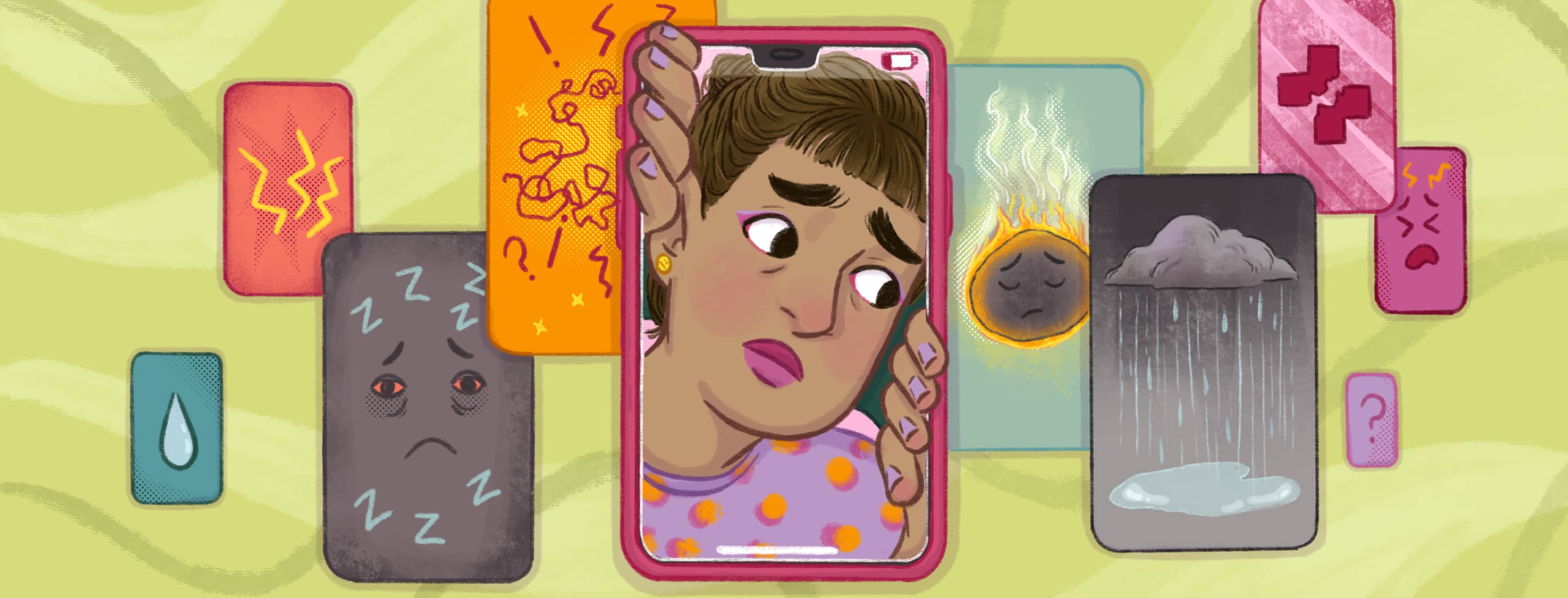Mental Health with SMA – A Cellphone Analogy
The best way I can describe living with a chronic disease like SMA is that I am a cellphone and my disease is all of the open windows in the background. You can’t see them as someone just looking at the phone and may not even know they are open. However, as the person with SMA, those windows are draining my battery affecting both my mental and physical health on a daily basis. The open windows include pain, grief, anxiety, depression, burnout, fatigue, stress, and medical trauma just to name a few.
Living with disability means increased mental distress
According to the CDC, a recent study found that adults with disabilities report experiencing more mental distress than those without disabilities. In 2018, an estimated 17.4 million (32.9%) adults with disabilities experienced frequent mental distress, defined as 14 or more reported mentally unhealthy days in the past 30 days.1 This has been further exasperated by the pandemic.
Society's ableist views
I struggle with my mental health like anyone can from time to time. I blame society for putting such a burden on disabled individuals to live in a world not created for them through ableist views.
Putting the burden on us so others feel comfortable
We are set up to fail mentally from the get-go. We are told things like you can overcome your disability.
If you work harder people will see past your disability. It is our job to make others feel comfortable in our presence. We should feel anxiety ridden so others around us aren’t uncomfortable.
Disability is not something you can overcome. It is part of an individuals’ identity. It is something that cannot be changed much like how tall you are or what size shoe you wear. These are fixed things for each person. To make those with a disability feel that they need to change literally something that makes them who they are can be very detrimental to their mental health.
Most mental health solutions not physically possible
The ableist views do not end there. Most of the strategy presented to abled-bodied individuals to improve their mental health involve using their physical abilities. You need to sweat out your problems, go for a walk, lose weight, take a relaxing bath, eat and drink well, connect with others. Many of these ways to cope with mental health do not apply to someone with SMA. I cannot physically do most of those things or they are another task that won’t make the cut on a long to do list already.
Tips for mental health with SMA
As an adult with SMA I have learned to find some ways to balance all of the open windows in the background of my phone.
- I have found real life and online connections with individuals who share my disability. They are a sounding board for some of the mental difficulties I face on a day to day basis.
- I have found simple things in life a reliable source of joy such as music, books, and being outside.
- I also am learning how to ask for help in the form of therapy and perhaps even medication to help my mental well-being. My first online appointment with a therapist is this afternoon.
Mental health needs to be spoken about more often in the disabled community. More resources need to be provided and therapists who understand the challenges of disabled individuals will be crucial.
Your mental health is just as important as your physical health. Asking for help may be necessary. You are worth the investment.
Let’s close those background windows in our cell phone together.

Join the conversation